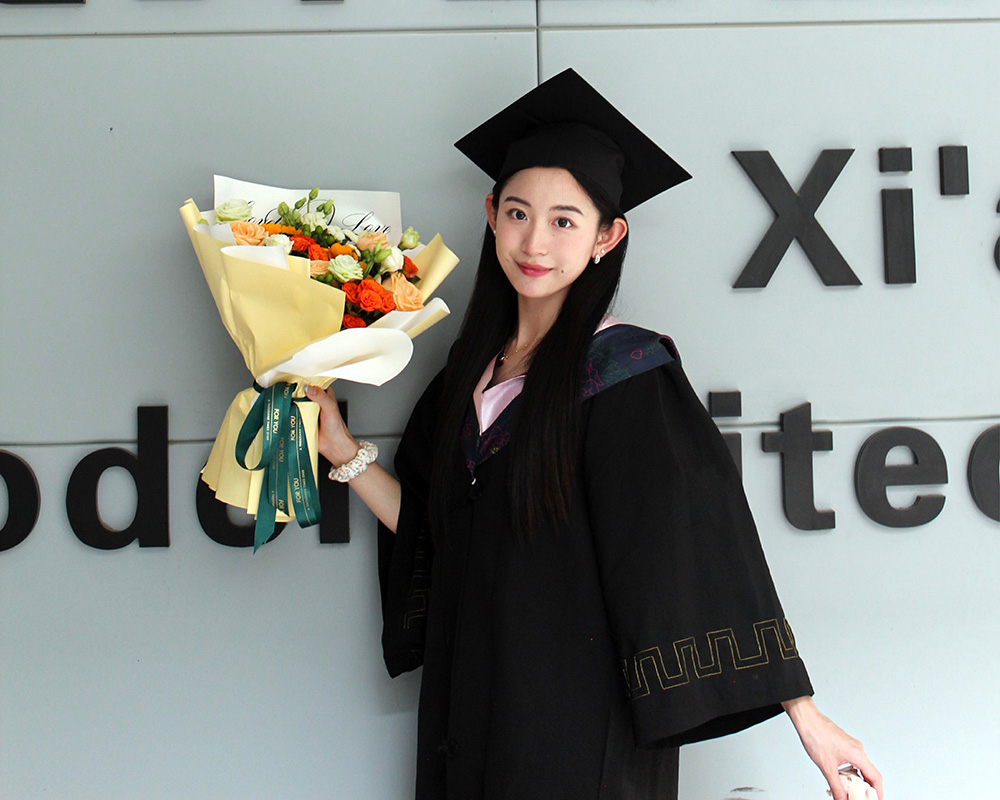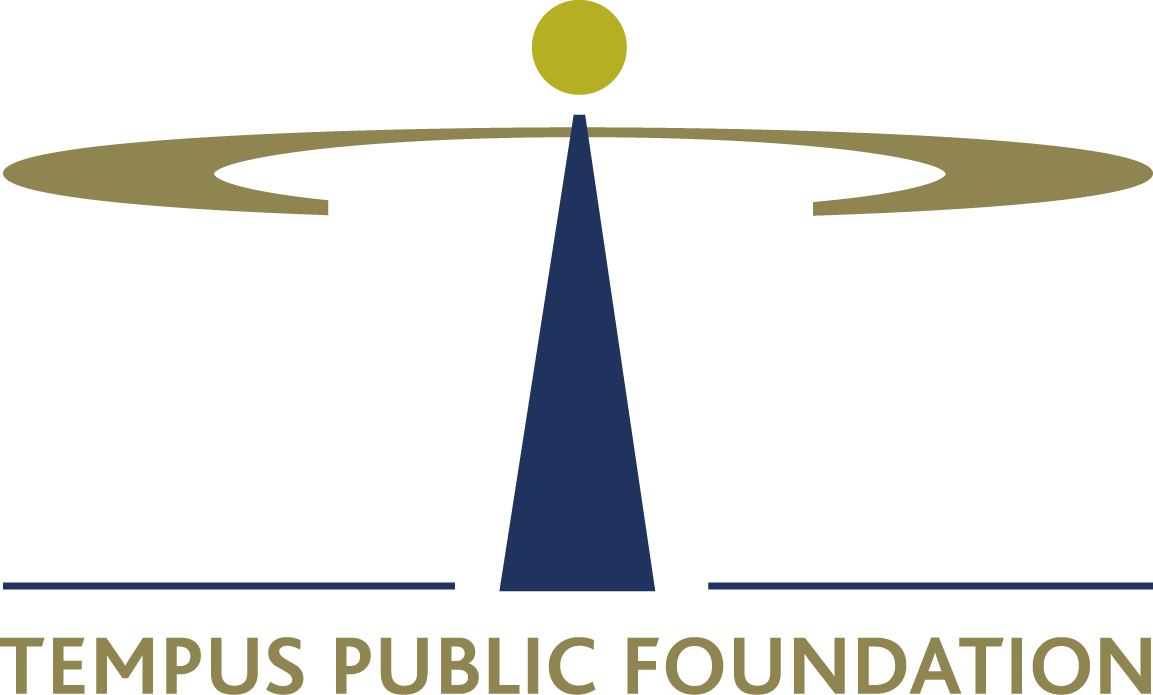You studied Hungarian in the Hungarian BA program at Xi’an International Studies University for a year. What motivated you to start learning Hungarian?
After taking the National College Entrance Examination, I wanted to learn a language that felt unique and interesting. Hungarian caught my attention—I found I could pronounce it almost perfectly, and I’ve always thought Budapest was a beautiful city. It felt like the perfect choice. So, I started studying Hungarian at Xi’an International Studies University in 2020.
What is Hungarian language teaching like in China?
We had three teachers: two native Hungarians and one Chinese instructor who majored in Hungarian. Éva was our grammar teacher and taught Hungarian grammar in English. Ms. Shi, our Chinese instructor, taught Hungarian history and grammar in Chinese. On Fridays, we had Hungarian speaking classes with our teacher, Ildikó, who encouraged us to speak Hungarian as much as possible, though we could ask in English if necessary. She placed great emphasis on incorporating the Kodály method into our lessons, and we also practiced basic conversation.
What the general knowledge of Hungary is like there?
In recent years, awareness of Hungary has really grown in China. Even a few decades ago, the Hungarian poet Petőfi Sándor’s famous poem Freedom and Love was already well-known. More recently, the launch of direct flights between Budapest and several Chinese cities has made it much easier for Chinese tourists to visit, sparking even more interest. On social media, landmarks like the Parliament Building, Fisherman’s Bastion, and Chain Bridge are often featured and become quite popular. Hungarian cuisine has also become a hit in China, especially after several Chinese variety shows were filmed in Hungary, which led to Hungarian food trending on Chinese social media!

Looking back on your journey with Hungarian, how did you build confidence in using the language?
A big part of my confidence came from the encouragement I received from the teachers at the Balassi Institute. They were always supportive, no matter how well or poorly I spoke, and their “Ügyes vagy!” (“You’re doing great!”) meant a lot. Positive feedback from locals also helped—whether I was ordering food or making small talk, Hungarians were kind, patient, and often complimented my pronunciation. These experiences made speaking Hungarian enjoyable and less intimidating.
What advice would you give to someone just starting to learn it?
To beginners, my advice is simple: don’t let grammar scare you! The goal is communication, not perfection. Speak bravely, even if you make mistakes—most Hungarians will understand and appreciate your effort. As you practice, your fluency will grow, and you can refine your grammar and vocabulary over time. Just take that first step and enjoy the process!
You’ve worked as a teaching assistant at the Department of Chinese Studies at Pázmány Péter Catholic University and mentored Chinese-speaking children in a kindergarten. What was your experience like, and how has your knowledge of Hungarian helped you navigate cultural differences in these situations?
I used Hungarian to share the richness of Chinese culture, which filled me with pride. At the kindergarten, my focus shifted to helping two Chinese children integrate by learning Hungarian and understanding local traditions.
I’ll never forget how, on my first day, a teacher exclaimed, “Finally, someone who understands what those kids are arguing about!” That moment made me realise how impactful it is to serve as a cultural bridge for my students.
These experiences showed me how knowledge extends beyond the classroom and creates real connections. My Hungarian skills have been invaluable for navigating cultural differences. Being able to express confusion or clarify misunderstandings in Hungarian helps turn gaps into opportunities for understanding and acceptance.
Living in a foreign country far from your home can be challenging. How has learning Hungarian helped you integrate into the country?
Learning Hungarian has been key to my integration into Hungarian society. Using the language to communicate with locals has opened up new perspectives and allowed me to connect with Hungarian culture on a deeper level. It’s heartwarming to see how much locals appreciate the effort, much like how we in China value foreigners learning Chinese.
Unlike studying English in my childhood, learning Hungarian has been a fully immersive experience, shaping not just my language skills but also my worldview. It has taught me to embrace cultural differences with curiosity and helped me reflect on the unique ways culture shapes us all.
While my home in China remains my foundation, Hungary has become a second home. Despite moments of loneliness, the beauty of Budapest, the warmth of its people, and my experiences at ELTE PPK have created a deep sense of belonging. Here, I’ve found a home away from home.
You have received the Stipendium Hungaricum Hungarian Language Excellence Award, which is given to Stipendium Hungaricum scholarship holders who excel in their academic studies while studying in Hungarian. What was the most rewarding part of receiving the Hungarian Language Excellence Award?
My love for the language was truly returned through this award, which felt like an embrace, recognising my growth and dedication over the three years I’ve spent in Hungary.
What made this moment even more special was that Xi’an International Studies University published an article about it, raising the profile of the Hungarian Studies program and inspiring more Chinese students to learn Hungarian. I’m grateful to have received this honour twice, as it not only boosted my confidence but also reinforced my passion for cross-cultural communication.
Anqi’s journey highlights how learning Hungarian can be both challenging and incredibly rewarding. For those inspired to follow in her footsteps, the Practice Your Hungarian online course provides essential support to improve your language skills, whether you’re a beginner or looking to sharpen your proficiency. With engaging lessons and expert guidance, it’s the perfect resource for anyone eager to dive deeper into the Hungarian language and culture. Begin your own language adventure today!




